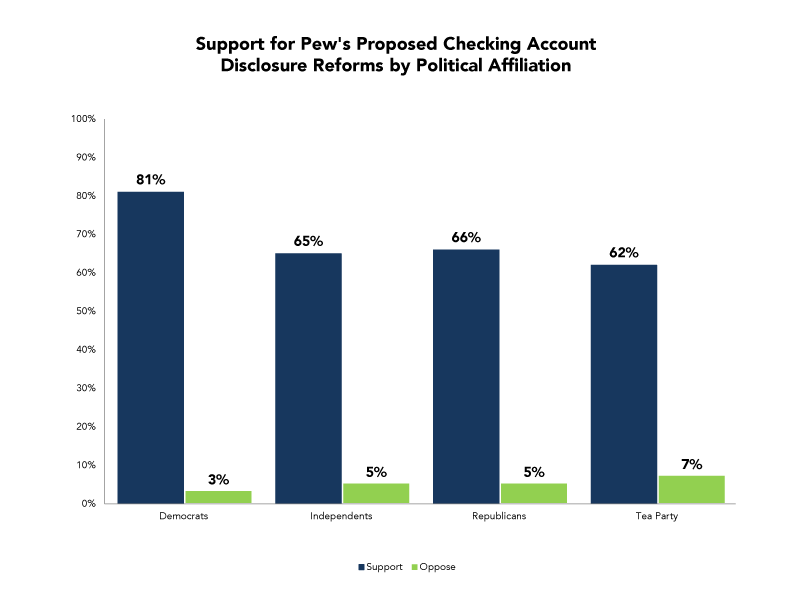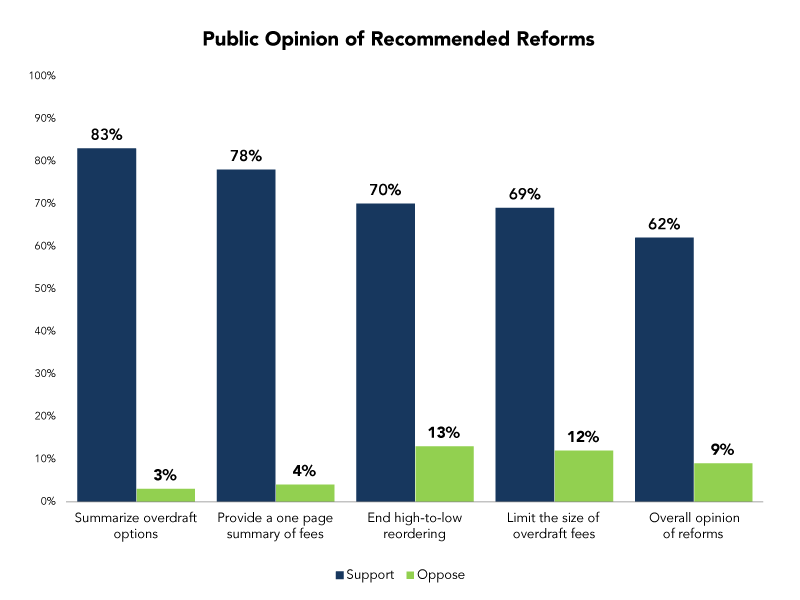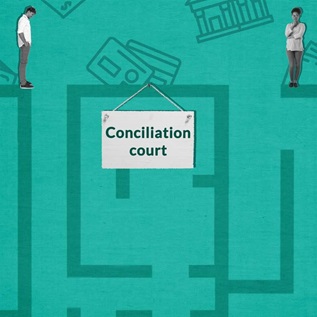Checking Account Customers Support Stronger Banking Regulations, Pew-Commissioned Poll Finds
Nearly three-fourths of Americans with checking accounts support regulations that would require banks to better disclose the terms, conditions and fees associated with their checking services, according to a new poll commissioned by the Safe Checking in the Electronic Age Project.
The support cuts across all political affiliations, with solid majorities among Democrats, Republicans, independents and those who say they agree with the positions of the Tea Party. All of these groups favor stronger disclosure requirements, according to the survey by the bipartisan team of Hart Research Associates and McLaughlin & Associates, which conducted the poll for Pew.
The data show that 81 percent of Democrats, 66 percent of Republicans, 65 percent of independents and 62 percent of those aligned with the Tea Party have a positive view of Pew's recommendations for banks to provide a summary of overdraft options and to issue a one-page summary of pertinent checking account information.

“Regardless of political affiliation, the majority of Americans with checking accounts view stronger oversight of this financial product as a positive move,” said Susan Weinstock, director of Pew's Safe Checking in the Electronic Age Project. “As the Consumer Financial Protection Bureau begins its directive to protect American consumers, we urge the bureau to make checking accounts, which nine out of 10 adult Americans currently have, safer and more transparent.”
Even respondents that say there is already “too much” or “about the right amount” of government oversight and regulation of banks support these new rules related to detailing account terms and overdrafts.
Among all survey participants:
- Eighty-three percent say it would be a positive change to require banks to provide a summary of information about the overdraft options they offer, how the options work and a description of the fees;
- Seventy-eight percent say it would be a positive change to require banks to provide a one-page summary of information about their checking accounts' terms, conditions and fees;
- Seventy percent say it would be a positive change to require banks to process transactions in the order in which they occur as opposed to processing them from highest dollar amount to lowest dollar amount, which can lead to more overdraft fees; and
- Sixty-nine percent say it would be a positive change to require banks to limit overdraft fees based on how much it costs the bank to provide the overdraft.

Even account holders who say they have a high level of trust in banks find these recommendations “favorable” with two-thirds or more saying each one would be a “positive change.”
“Americans want to know their checking accounts are safe and that the terms of their accounts are disclosed in an easy-to-understand format,” said Weinstock. “The Consumer Financial Protection Bureau currently has the authority to better protect consumers by requiring banks to issue a one-page document, similar to the form currently used for credit cards, and to provide a summary of overdraft options. The bureau should implement these changes now.”
These findings are derived from a national survey of 805 checking accounts holders conducted July 5-10, 2011, by Hart Research Associates (D) and McLaughlin & Associates (R). Respondents were contacted by telephone, including 150 who were interviewed via cell phone. The results of the poll are statistically representative of the opinions of checking account holders nationwide, and carry a margin of error of ±3.5 percentage points for the full sample, and higher margins of error for subgroups of the sample.











